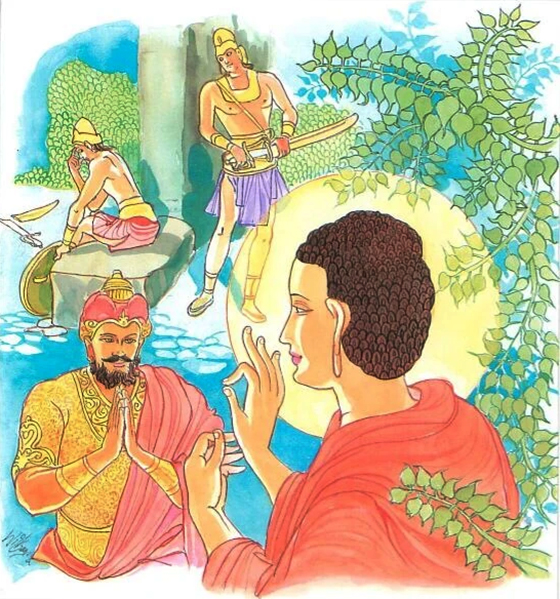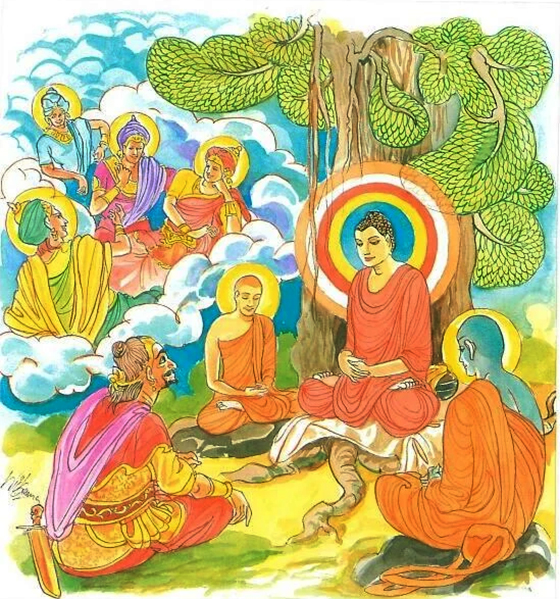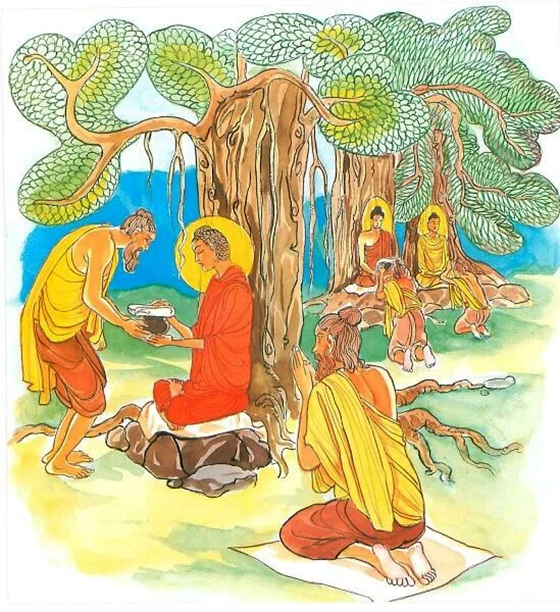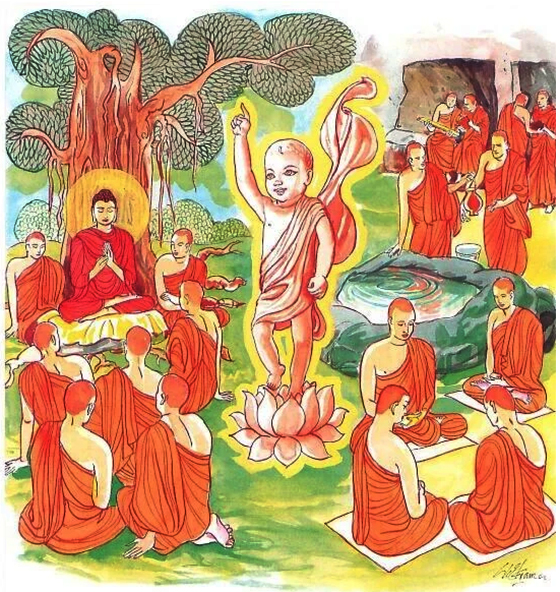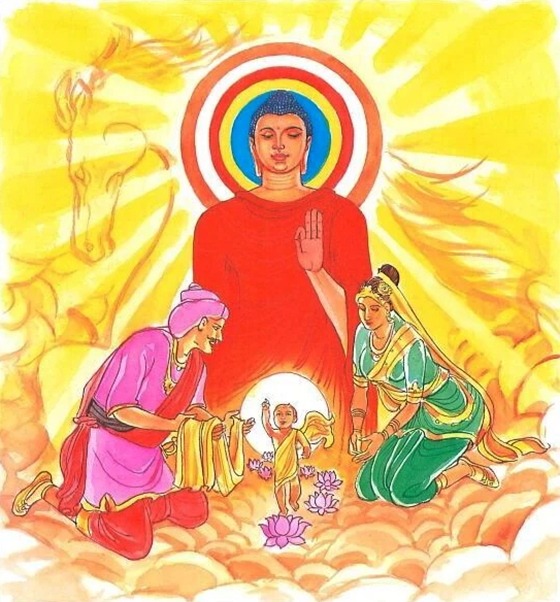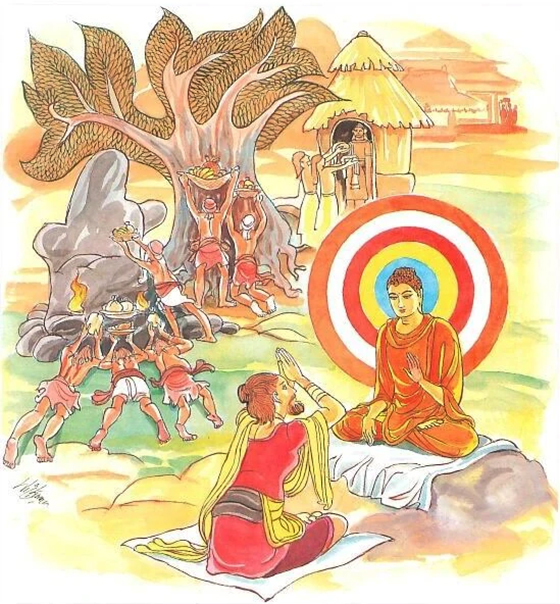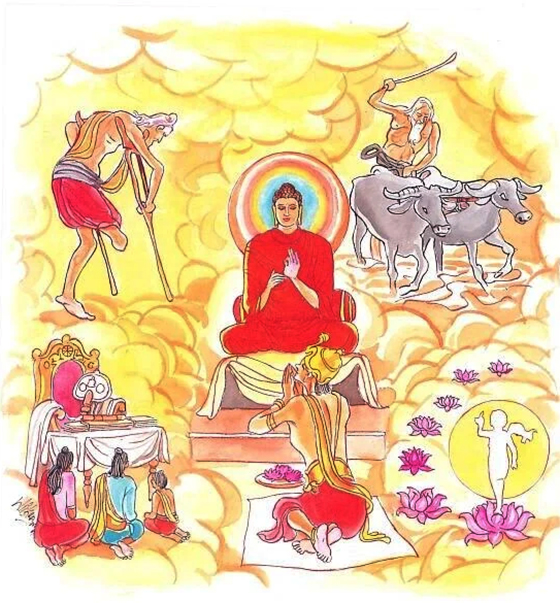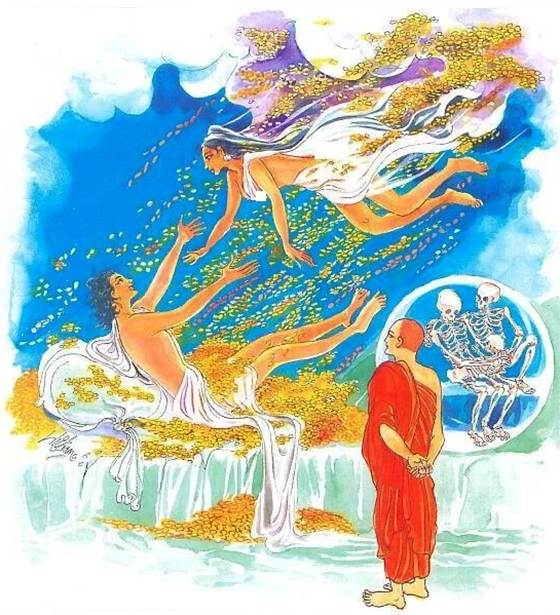
Verses 186 & 187: Not by a shower of coins can sensual desires be satiated; sensual desires give little pleasure and are fraught with evil consequences (dukkha). Knowing this, the wise man, who is the disciple of the Buddha, does not find delight even in the pleasures of the devas, but rejoices in the cessation of craving (i.e., Nibbana).
The Story of a Dissatisfied Young Bhikkhu
While residing at the Jetavana monastery, the Buddha uttered Verses (186) and (187) of this book, with reference to a young bhikkhu who was unhappy with his life as a bhikkhu.
Once, there was a young bhikkhu at the Jetavana monastery. One day his teacher sent him to another monastery to study. While he was away, his father became seriously ill and died without seeing him. But his father left for him one hundred kahapanas with his brother, the boy’s uncle. On his return, his uncle told him about his father’s death and about the one hundred kahapanas left to him. At first, he said that he had no need of the money. Later, he thought that it might be better to return to lay-life, and as a result, he got dissatisfied with the life of a bhikkhu. Gradually, he began to lose interest in his life and was also losing weight. When other bhikkhus knew about this, they took him to the Buddha.
The Buddha asked him whether it was true that he was feeling unhappy with his life as a bhikkhu and whether he had any capital to start the life of a layman. He answered that it was true and that be had one hundred kahapanas to start his life with. Then the Buddha explained to him that he would need to get food, clothing, household utensils, two oxen, ploughs, pickaxes, knives, etc., so that his one hundred in cash would hardly meet the expenses. The Buddha then told him that for human beings there could never be enough, not even for Universal Monarchs who could call for a shower of coins or gems or any amount of wealth and treasures at any moment. Further, the Buddha related the story of Mandatu, the Universal Monarch, who enjoyed the glory of the devas both in the Catumaharajika and Tavatimsa realms for a long time. After spending a long time in Tavatimsa, one day, Mandatu wished that he were the sole ruler of Tavatimsa, instead of sharing it with Sakka. But this time, his wish could not be fulfilled and instantly he became old and decrepit; he returned to the human world and died soon after. Continue reading →


